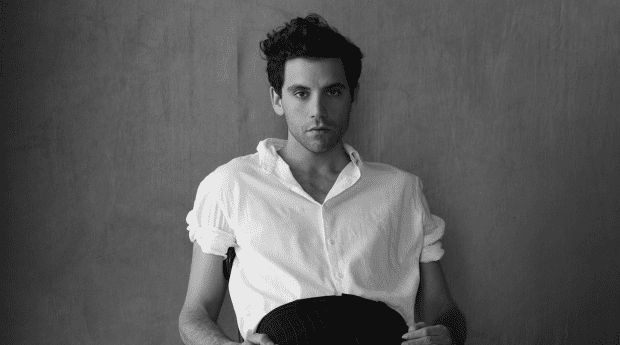“Talk about You” is the first single from Mika’s new album, No Place in Heaven
UMG
The tabloids have been obsessing over Mika’s sexual orientation ever since the British-Lebanese pop star exploded on the charts in 2007 with his debut album, Life in Cartoon Motion. To the surprise of no one, Mika came out as gay in 2012. But just three years earlier, when I first interviewed Mika, his handlers warned me to avoid personal questions and stick to the music.
So instead, Mika and I had talked about another closeted pop star, the late Freddie Mercury. It was like we were talking in code. Imitating Mercury from the famous backstage British TV interview on the Queen — We Will Rock You: Live in Montreal 1981 DVD, Mika turned to me, legs crossed and, pretending to hold a cigarette, did his finest imitation of Freddie Mercury. “Yes, dahling,” Mika said à la Mercury. “Hello, dear!”
Following three sold-out concerts with the Montreal Symphony Orchestra (OSM) earlier this year, I sat down with Mika to talk about his new album and his obsession with Freddie Mercury.
Daily Xtra: The emotional centerpiece of your new album No Place in Heaven is the beautiful ballad “Last Party,” an ode to Freddie Mercury. The last time I saw you, you imitated Freddie backstage on the Live in Montreal DVD . . .
Mika: Yes! I remember — that interview is something straight out of Absolutely Fabulous (laughs). The song “Last Party” started with this idea that I had, when Freddie Mercury found out that he had AIDS, he closed himself up in a nightclub and had a crazy party for three days, with drugs and everything. It was the worst possible thing to do after discovering that kind of news, but that’s what he did. That’s why that song is called “Last Party,” and it’s one of the saddest songs I’ve ever heard.
You performed three sold-out nights at the Maison Symphonique de Montréal, performing newly-orchestrated interpretations of your songs with the OSM. How much work was it and will you release a live album?
We prepared for the Montreal concerts for six months. It was a long process: [orchestrator and conductor] Simon [Leclerc] got it, he listened to every single granule of everything I had ever done. Then on opening night I wasn’t nervous. I felt elation. There was new blood pumping through my veins because I was doing something that was now beyond my control. It’s like being a kid again. It’s like being on a trapeze or a high-wire with no safety net beneath you. It’s this incredible thing. You see it in classical music too: 110 people onstage together in exactly the same headspace. We recorded every single note on 100 channels and are planning to release an album of the shows.
You’re back in Montreal this summer for two more concerts at the jazz festival. Montrealers love you. Why do you love Montreal?
I enjoy Montreal because it’s an easy place to be creative, it has all the good sides of North American culture as well as French and European culture, yet it is not in the shadow of the United States, which I think is great. It is a place that has fought to preserve its cultural identity and by doing so procures culture. The first response you get when you come up with a crazy idea in Montreal is not “no” but “maybe.” And that’s pretty great. That’s why crazy things come out of this town.
How difficult was it to negotiate the showbiz closet before you publicly came out as gay in 2012?
Things take time. From the viewpoint of the press and the veil of marketing — external things — you can often forget that things take time. There is a personal side to every story. How do you deal with something publicly when you don’t deal with it personally? That should be the last thing you do, if you’re not dealing with it. Otherwise you fuck yourself up and you end up in a really dark place.
One thing I will say and said even back then — and nothing has changed in this respect — is that the concept of coming out is a very dangerous one because it is not the most in-depth thing. It’s like a firecracker that goes off. Then what happens afterwards? Sexuality and identity have been the ingredients of my music and lyrics since the beginning. It was always there. It’s just that my figuring out was done in a different way and under a lot of pressure, a lot of negative pressure, which was the worst possible thing that could be done. What was the point?
LGBT activists wanted you to be a posterboy.
But they already had me. Just read my lyrics. I’m still very private about my private life. Developing a sense of candidness takes time.
Are you happier today than you were five years ago?
I was happy then too. Then, as now, I have the privilege of doing what I love. I’m really happy that I have the freedom to deal with the concept of sexuality, labels and breaking those preconceptions and how you are supposed to deal with it. I gave myself that freedom.
Mika
Montreal International Jazz Festival
Saturday, July 4–Sunday, July 5, 2015
No Place in Heaven is out now.
montrealjazzfest.com


 Why you can trust Xtra
Why you can trust Xtra


